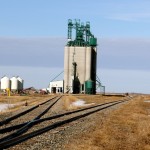Initial reaction to the Canadian Transportation Act review report is that it falls far short of fixing what’s broke with the grain transportation system. Farmers are worried about recommendations to phase out the Maximum Revenue Entitlement (MRE) over seven years and shorten interswitching access. But they welcome proposals to improve the MRE in the interim,












